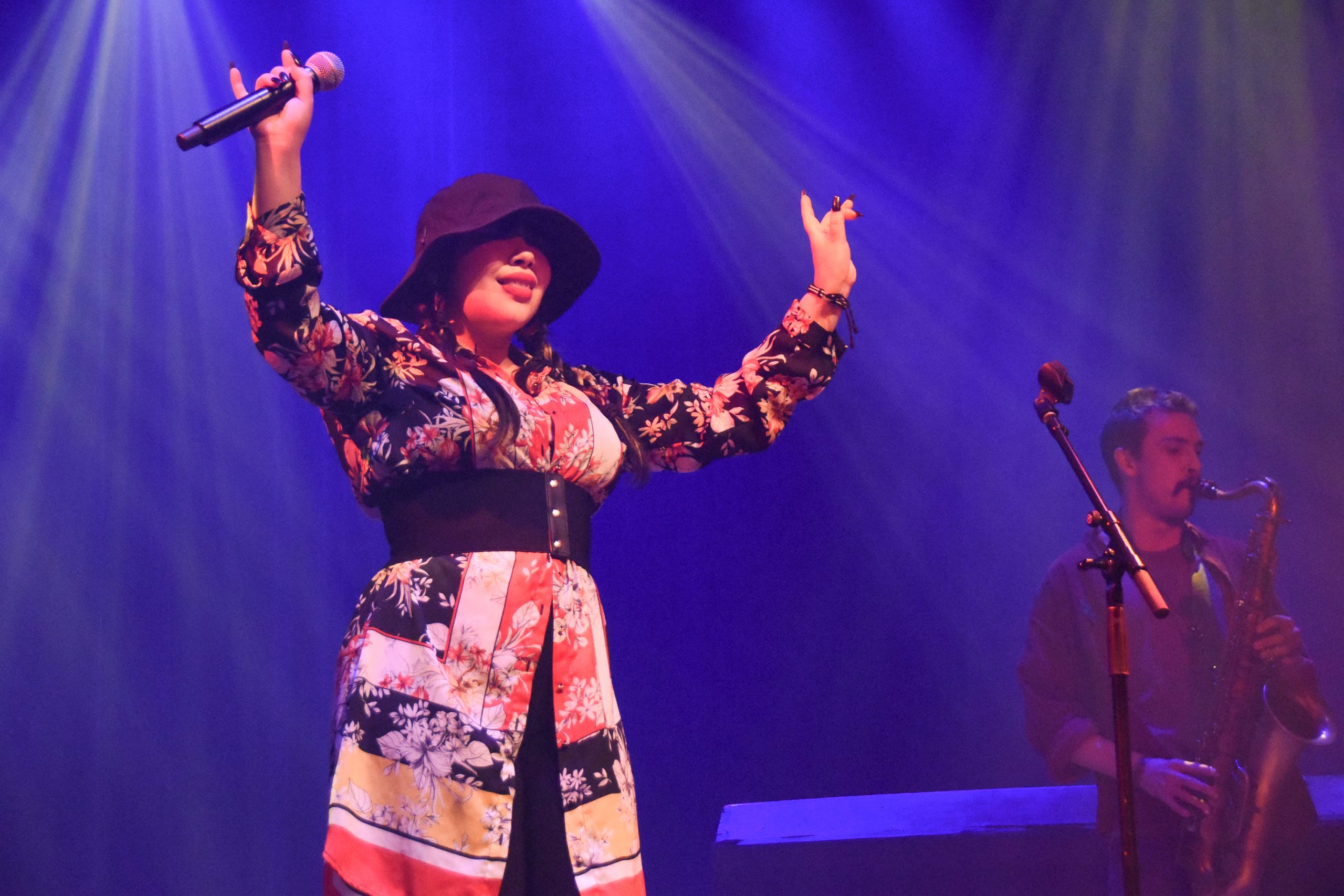Indigenous and non-Indigenous artists performed in solidarity at La Tulipe
“It does hurt his spirit,” Anachnid said after her performance at the Tio’tia:ke + Wet’suwet’en Concert last Thursday. “That’s why I sang that song for him.”
Anachnid is an Oji-Cree multidisciplinary artist based in Montreal. She performed “Braids,” a collaboration with saxophonist Ashton Phoenix Grey and producer Emmanuel Alias on Dreamweaver released Feb. 28. The song is written about Anachnid’s younger brother who is six years old.
With a techno beat that opens to a pulsating drum bass, Anachnid’s voice echoed encouragement for boys and girls who sport their braids. “Braids” embraces the flow of long hair because recently, her little brother was told to cut his lengthening strands at school.
…
The Tio’tia:ke + Wet’suwet’en Concert was organized by multidisciplinary artist Natasha Kanapé Fontaine and musician Elisapie Isaac in solidarity with the hereditary chiefs opposing the Coastal Gaslink pipeline.
Random Recipe, Lydia Képinski, Jesse Mac Cormack, Les Soeurs Boulay, Nomadic Massive, and 2018 Polaris Prize winner Jeremy Dutcher and others were all there to perform and show their support.
Fontaine and Isaac performed music and poetry throughout the night and hosted a diverse range of artists in support of the railway blockades and demonstrations that denounced the potential pipeline passage across unceded ancestral land.
There was traditional throat singing, drums, dance, contemporary song, rap, and poetry.
Both Indigenous and non-Indigenous artists filled the space with song and poetry, sharing their stories in solidarity amid the crisis to preserve Indigenous territories and culture, and in celebration of the earth.
Despite the dark and cloudy atmosphere of uncertainty as a result of COVID-19, there was clarity when the artists performed. From one artistic act to the next, there was pause, laughter, cheers, and applause for the diverse lineup, but also there was certainty in the eyes of the audience members and the performers. Everyone was there for the same reason: to show support during societal and political turbulence through music, art, and poetry.
The benefit carried and amplified the voices and songs of Indigenous artists too, both well-known and local.
…
“Braids represent the past, the present, and the future,” explained Anachnid. “Children, adults, and elder, and all three phases in life, united.”
When men, two-spirit, LGBTQI+, or other minorities are forced to cut their hair, Anachnid said they are usually forced to do so to adapt under societal pressures. She said they lose part of their culture, explaining that the longer the braids, the closer it is to the sweet grass—to the soul. Sweet grass represents the grass of Mother Earth; when burned, it cleanses like sage.
She also said that it was fine for people to cut their hair if they wanted to. “That’s how people shapeshift,” she said
When it came to performing, and creating music together, at first, Anachnid and Grey spoke different languages.
“I’m air,” she said about her creative chemistry with saxophonist Grey. “He’s fire—it amplifies, if anything.”
While it took love, anger, pain, and joy, like any other relationship, to be able to collaborate smoothly with one another, the ingenuity of both artists blended together well that night. Anachnid uplifted the crowd with her vocals as Grey played his instrument.
“No, no, no, we both are,” Anachnid said.
Photos by Cecilia Piga.
